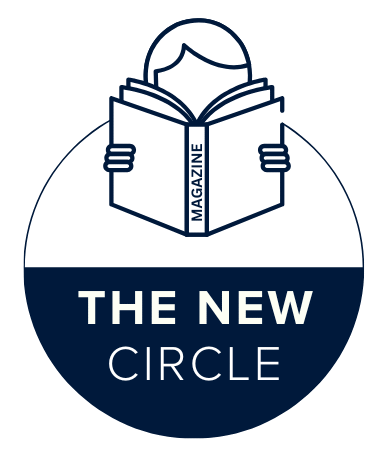Key Takeaways
- Smaller class sizes in private middle schools allow personalized attention and tailored instruction.
- Enhanced academic opportunities, including advanced courses and extracurricular activities, foster intellectual growth.
- A strong emphasis on character development and leadership prepares students for future challenges.
- Safe and nurturing environments promote emotional well-being and a sense of belonging.
- Active parental involvement strengthens the educational experience and community ties.
Table of Contents
- Personalized Learning Through Smaller Class Sizes
- Enhanced Academic Opportunities
- Emphasis on Character Development and Leadership
- Safe and Nurturing Environment
- Active Parental Involvement
- Preparation for Future Education
- Balanced Development Through Extracurricular Activities
- Conclusion
Choosing a strong educational foundation is a pivotal step for any family. A private middle school can offer students unique advantages, providing academic excellence and opportunities for social and emotional growth. When parents seek more than just the basics for their child’s education, a well-rounded approach in private schooling is a beneficial choice.
From nurturing individualized learning and fostering leadership to encouraging community involvement, private middle schools frequently deliver on elements far beyond classroom instruction. These schools focus on the holistic development of each student, giving children the resources and support needed to thrive in all aspects of life while preparing them for the future.
The value of a diverse and rich learning environment cannot be overstated. In private settings, students are often guided with greater personal care, providing an atmosphere where curiosity grows and self-confidence can flourish. Parents looking at their options for middle school education will find that the concentrated attention and nurturing climate can significantly affect their child’s academic outcome and overall well-being.
Additionally, private middle schools frequently build strong partnerships with families, deepening the sense of community and educational purpose. By weaving together academic rigor, character development, and extracurricular engagement, these institutions set students up for lasting success. For more insights about the benefits of private schools, see the educational perspective shared by The Hun School.
Personalized Learning Through Smaller Class Sizes
One of the defining features of private middle schools is their ability to maintain smaller class sizes. This educational advantage means teachers can work more closely with each student, identifying unique learning styles and giving immediate feedback when challenges arise. This individualized support boosts confidence and academic engagement, ensuring no student is left behind.
With fewer students per class, teachers can create classroom experiences that are dynamic, relevant, and responsive to the group’s needs. According to Today’s Parent, small class sizes are directly linked to higher student achievement, particularly during key developmental years.
Enhanced Academic Opportunities
Private middle schools typically enrich curricula with diverse educational offerings and advanced coursework. Many provide opportunities for gifted students or those interested in particular subjects to explore at a higher level. This could range from STEM competitions to literary forums, critical thinking workshops, and foreign language immersion experiences.
Moreover, with extended access to advanced technology, dedicated science labs, and creative arts programs, students are encouraged to explore their talents and develop skills that set them apart—enhanced academic rigor positions students to transition into competitive high school programs confidently.
Emphasis on Character Development and Leadership
Private middle schools prioritize instilling core values and ethics that will serve students throughout life. Programs intentionally promote respect, responsibility, empathy, and leadership. Students often learn the importance of giving back through community service projects, student council roles, and peer mentorship opportunities.
This holistic approach to education fosters academic excellence and develops good citizens ready to lead with compassion, fairness, and integrity.
Safe and Nurturing Environment
Safety and emotional well-being are critical in a student’s ability to focus and grow. Private middle schools invest heavily in campus security, fostering environments where students feel protected and valued. This nurturing setting also helps curb bullying and negative behaviors, as the close-knit community often self-regulates and supports its members.
Within these supportive boundaries, students can express themselves, seek help when needed, and form deep, lasting friendships.
Active Parental Involvement
Families are partners in the educational journey at private middle schools. Schools coordinate regular conferences, workshops, and social events, inviting parents to actively participate in their child’s progress and the broader school community. This transparent communication improves student outcomes by ensuring home and school work collaboratively toward student goals.
Research also shows that when parents are involved, students earn higher grades, have better attendance, and demonstrate improved social skills.
Preparation for Future Education
Through challenging coursework and personalized guidance, private middle schools equip students with the academic skills, study habits, and resilience needed for high school and college demands. The focus is on developing critical thinking abilities, self-advocacy, and adaptability—the attributes universities and employers increasingly seek.
Guidance counselors and teachers work closely with students to plan academic trajectories that align with their strengths and interests, preparing them for a lifetime of learning and achievement.
Balanced Development Through Extracurricular Activities
Beyond academics, private middle schools cultivate well-roundedness through diverse extracurricular options. Every student can find their growth niche through athletics, arts, robotics clubs, or debate teams. These programs encourage teamwork, discipline, creative thinking, and social connection.
Participation nurtures both mind and body, ensuring students develop essential life skills and passions that endure beyond the classroom. The Hun School explores how these experiences can significantly influence students’ confidence and character.
Conclusion
Investing in a well-rounded private middle school education delivers enduring value. From small class sizes and tailored learning to comprehensive extracurricular activities and character-driven development, private schools nurture future leaders in a caring, safe community. This educational approach sets the stage for academic achievement, personal fulfillment, and responsible citizenship, preparing students for the challenges and opportunities.
YOU MAY ALSO LIKE: How Online Education Is Shaping the Future of Teaching

